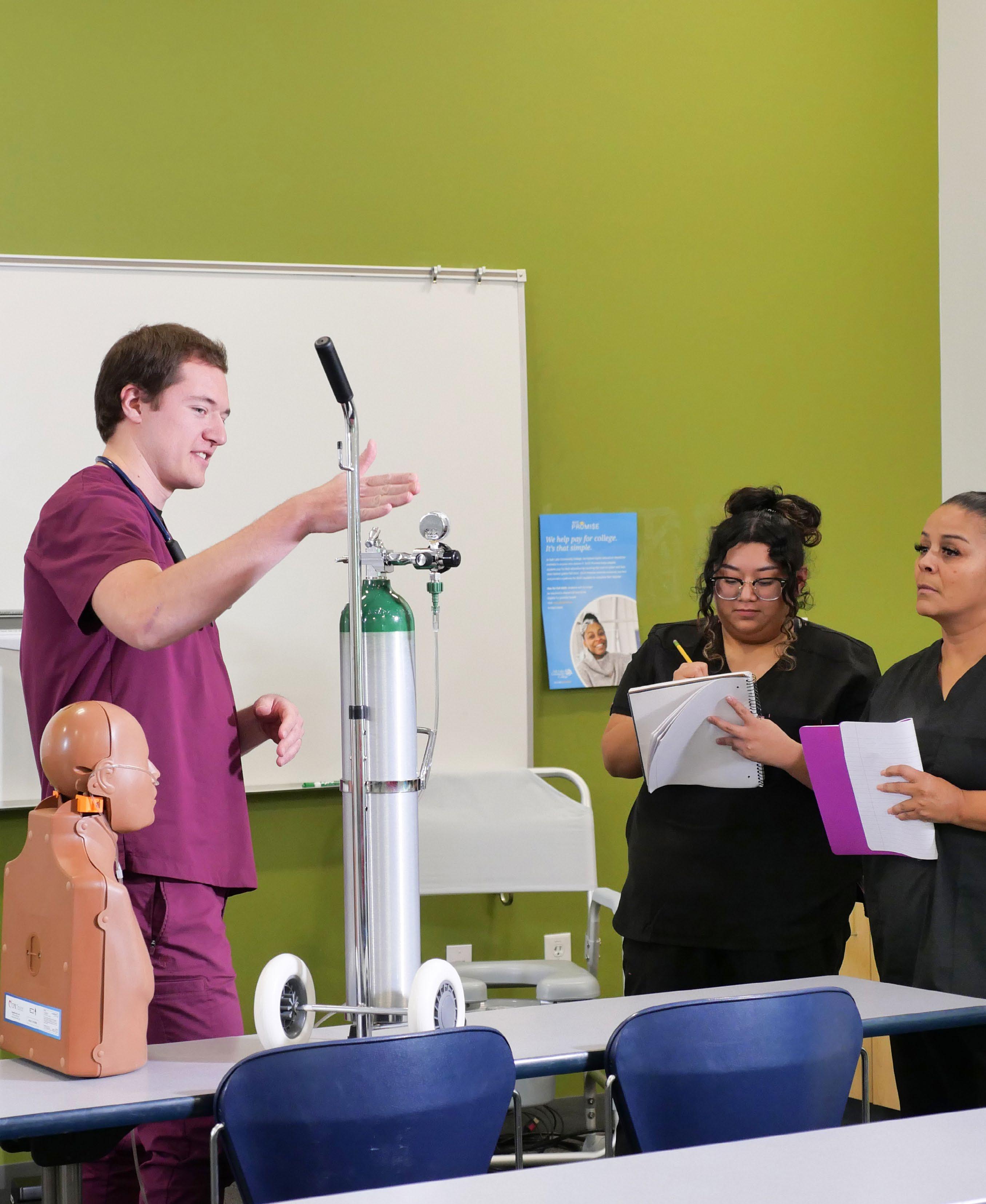
2 minute read
New Classes Help Meet Labor Demands
ESL support is now available within some classes for English language learners
Recently, Maria Ammar met a Ukrainian refugee who had worked on cars in his home country. He was learning English and figuring out how to make a living in Utah. Ammar, associate dean, English as a Second Language (ESL), told him about a new Salt Lake Technical College (SL Tech) program for diesel mechanics that supports English learners.
This past fall, Salt Lake Community College’s SL Tech launched its first ever contextual classes in which ESL instruction is tailored to the subject matter. In both the college’s Certified Nursing Assistant and Diesel Mechanic programs, ESL instructors team up with class instructors to teach and support English language learners as needed.
Instead of focusing on grammar and syntax, instruction focuses on vocabulary specific to the class and industry. Students may receive ESL instruction for several weeks prior to the class beginning and then during classes, both the ESL and class instructors are present to teach and support.
“What is key is that teachers are working together, talking to each other about the students’ progress,” says Ammar. “For example, the diesel tech instructor can say ‘Hey, this student is having a problem in this area,’ then the ESL instructor can review it with the student while in class.”
Jennifer Saunders, dean of SL Tech, frequently hears from local employers looking for career-ready graduates. “We know there is a huge labor demand, and we also see this untapped pool of potential workers who are English language learners.”
Saunders has seen how SL Tech’s programs can quickly turn around desperate lives. Students may be working two to three jobs and barely making ends meet; a degree or certification in one of the College’s programs means graduates are able to secure a job that pays a living wage, launching their career path. “They have the work ethic, but they need the opportunity,” says Saunders.










